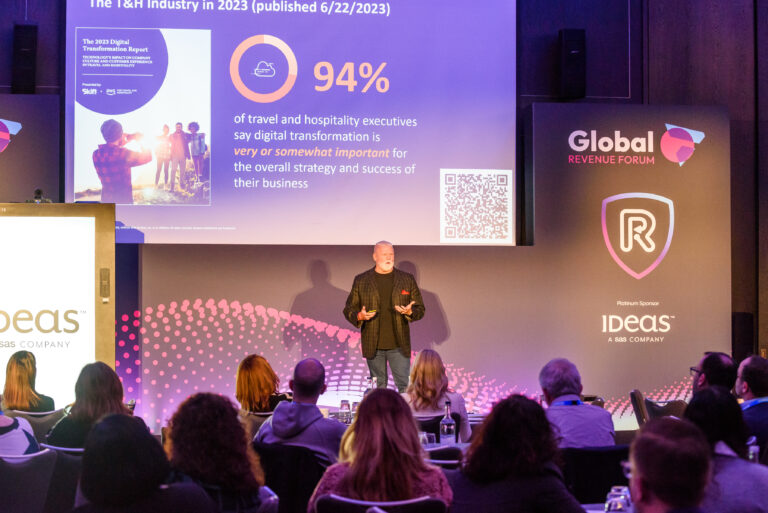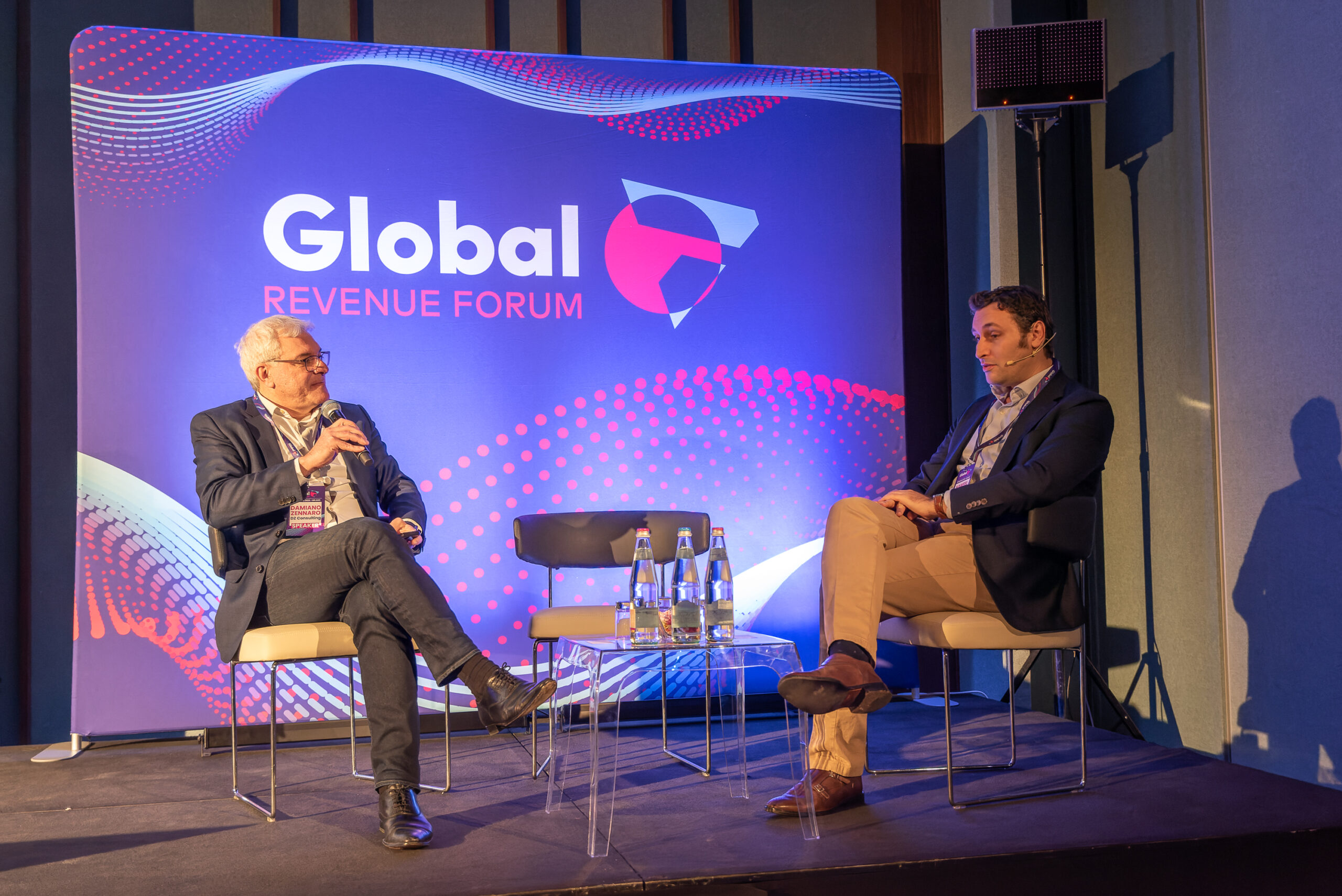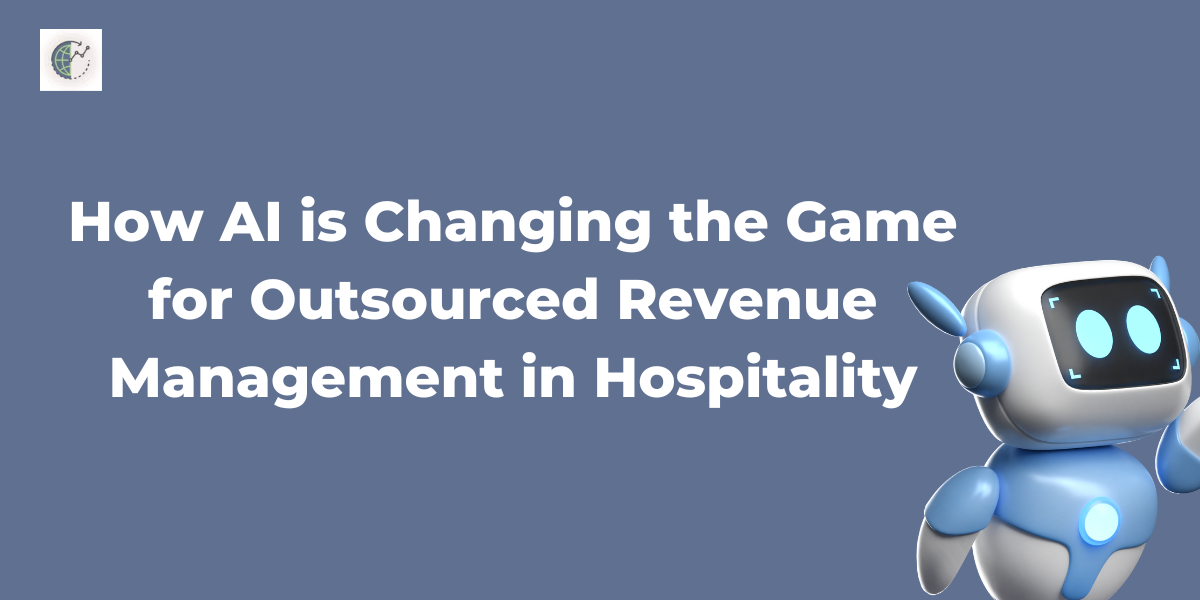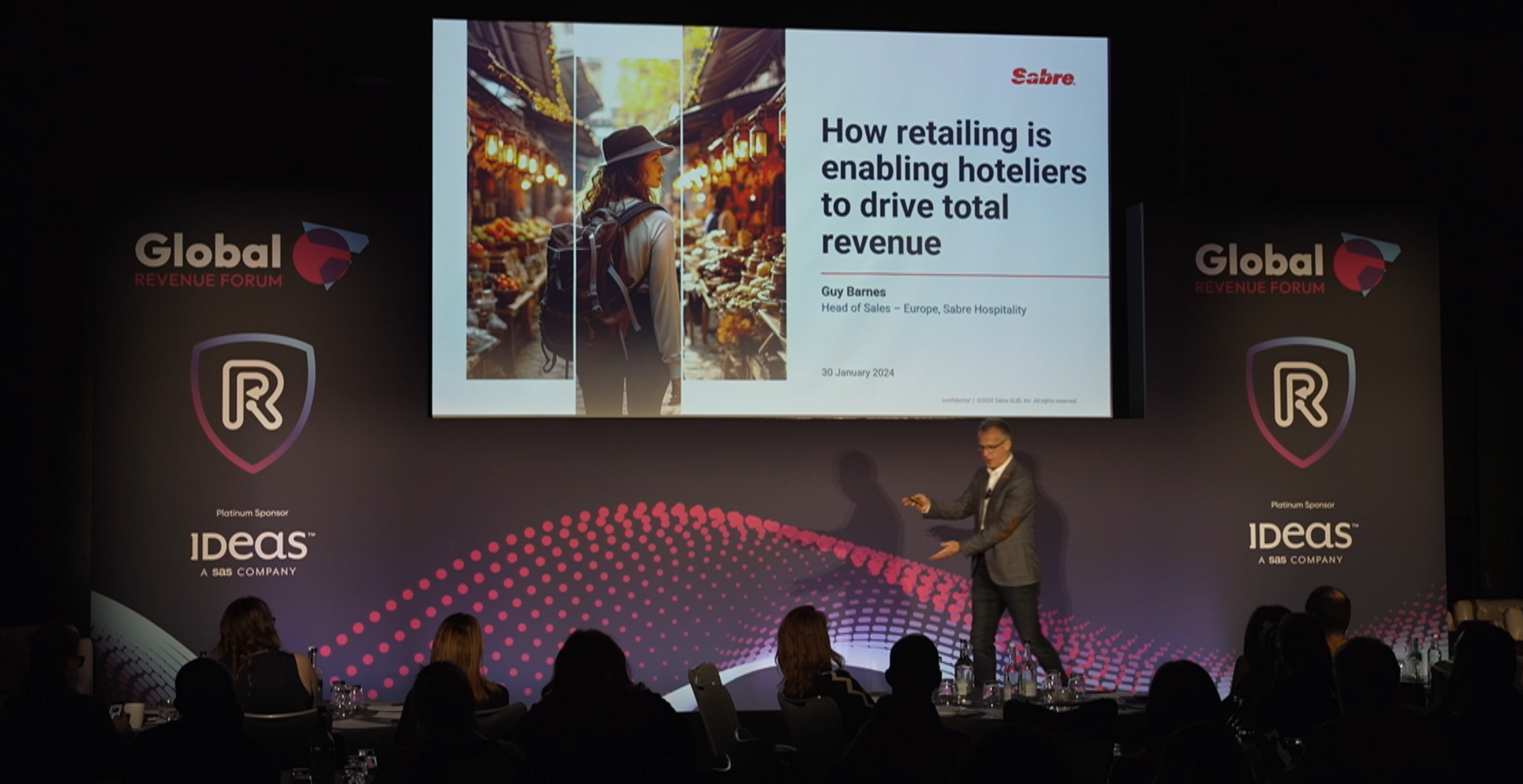At the recent Global Revenue Forum, we were delighted to welcome Greg Land, Global Head of Accommodation, Lodging, Casino & Cruise at Amazon Web Services as our opening keynote. As we embarked on a day dedicated to exploring strategies designed to future-proof our industry given the uncertain environment we find ourselves in, Greg was ideally placed to draw on his 30+ year career in the travel and technology space to focus the importance of innovation in building a resilient and efficient operational framework.
Technical and cultural resilience
Greg kicked off his session by introducing the importance of both technical and cultural resilience. ‘We live in a world where consumers expect organisations to be available 24-7 and service outages or system failures can make worldwide news and break a company’s reputation,’ he said. ‘This, combined with remote teams, complex and disparate systems, and frequent release and updates, mean technical resilience is crucial to the success of a business.’
In addition, Greg highlighted the importance of a culture of resilience, an ethos very much baked into the AWS culture. This promotes a mindset where teams are vigilant to errors and have the power and ownership to address issues and work together to prevent them from reoccurring. ‘Underpinning the work processes that support the design, deployment and ongoing operation of AWS cloud-based services, procedures and functionality are constantly reviewed,’ he explained. ‘Should an error occur, a ‘Correction of Error’ procedure means that the root cause of the error is fully explored and processes implemented to prevent reoccurrence.’
‘Failure is going to happen. It happens every day. Resilience is the ability of workloads to respond to and recover quickly.’
Greg Land
Tweet
Leverage Digital Transformation…or get left behind
The turbulence of the last few years highlighted how digital transformation – or the incorporation of computer-based strategies into an organisation’s products, processes and strategies – can support change management, allowing businesses to react quickly to changing market conditions. ‘As guest demands and expectations evolve with pace, the pressure to embrace digital transformation is greater than ever,’ Greg explained, highlighting that 75% of travellers now expect hotels to offer self-service capabilities. ‘Digital transformation will not only allow us to respond to and deliver on these evolving guest demands, to adapt and pivot quickly as we react to market conditions, and to scale quickly, but it will also fuel innovation and creativity, both in the guest experience and in driving operational efficiencies.’
Greg cited one such example of the power of digital transformation – Hilton’s recent migration of their PMS and CMS to the cloud, allowing real-time room availability when booking. Over the pandemic, families keen to stay together on holidays had looked to vacation rentals. Now, given Hilton’s cloud-based linked systems, Hilton can guarantee interconnecting rooms at the point of booking. Such is the demand and success of this, especially given the increased trend for multi-generational travel post- pandemic, it spurred a successful advertising campaign that just focuses on this functionality and its benefit to the guest.
Why Data Matters
While digital transformation allows for a robust enough foundation to implement step-change benefits through innovation, Greg explained the role of AI and Machine Learning in delivering operational efficiencies and enhancing the customer journey. While many of us are familiar with AI-driven functionality, such as AI-driven revenue management decisions or booking engines allowing for personalized upsell and cross-sell opportunities, Greg emphasized that central to the success was a responsible approach to data management. The repercussions of data mismanagement can have a potentially disastrous impact on your brand. ‘Screw up once on personalisation, and you damage your brand, and you may never get that consumers trust back again’ said Greg.
Greg expanded on four non-negotiable pillars of your data management strategy to ensure robust and accurate datasets to underpin digital transformation:
- Embrace the cloud– the most efficient, effective, and secure place to aggregate data and architect it to use across your organisation
- Implement an end-to-end data strategy that treats data as a strategic resource- Greg mentioned that increasingly, he is seeing data ownership moving from IT to the user functions such as sales, marketing, and operations who have a greater understanding of the data and how it can be used.
- Promote data literacy from the top down – data strategies and literacy need to be embedded into the culture of an organisation, and driven from the top down.
- Build and deploy responsible AI – ‘Just because you can, doesn’t mean you should,’ said Greg. Use data carefully, and ensure its deployment is responsible and ethical.
Greg concluded this section of his keynote by highlighting how a number of travel companies have integrated AI and Machine Learning into their commercial strategies to deliver significant uplifts to their bottom line. Hyatt leveraged AI to roll out personalised recommendations to bookers, resulting in $40 million incremental revenue in the first 6 months, and the TUI Group used Machine Learning to implement real-time dynamic pricing strategies, increasing the margins on bookings by 53%.






